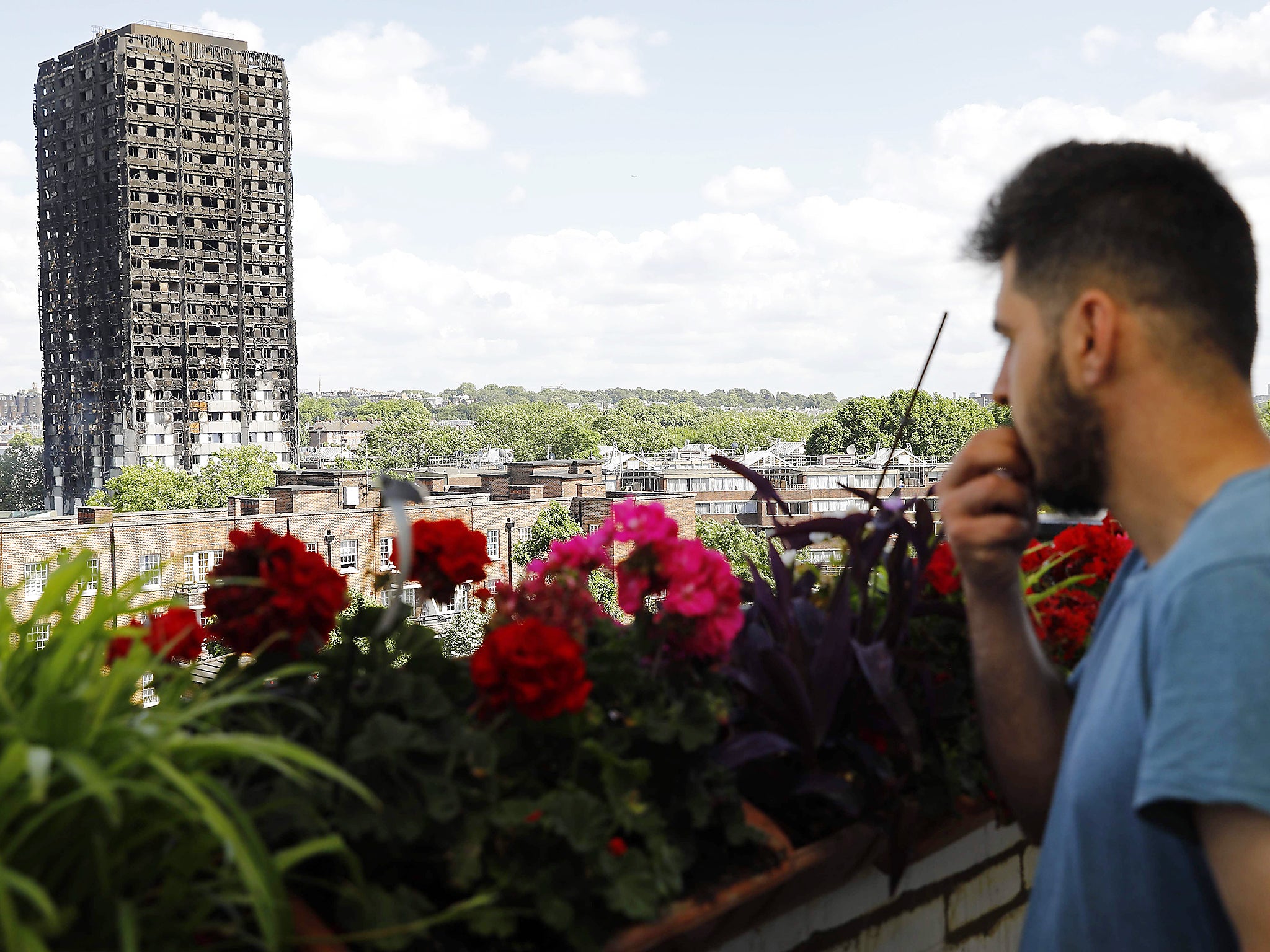I grew up on a council estate in London – it's been obvious for years how neglected social housing is
‘As new builds pop up around London, the tower blocks and estates that sit next to them remain dilapidated’

As a Londoner born and bred I am angry, upset and disgusted by the tragic event at Grenfell Tower this week.
I grew up in a council block in Gospel Oak. It was a seven-storey estate that was spread across a five mile radius. I often wondered growing up why my estate would reek of urine or dog mess. There was no security, which made it the perfect spot for drug dealers or criminals to stray.
My family and I, along with other residents, were not fazed by this – we got on and made it our community hub and made sure we looked out for each other. That’s a tradition which has made working class Londoners strive and come together regardless of background, race, sexuality or religion.
The council eventually did remedial works on our block, placed more security on site and installed double glazing. In terms of building renovations, I don’t remember my mum being told what materials were used or being given any assurances about their safety – they were just installed. It seems that has been the case for many years for people living in council estates and social housing. Decisions are made by executives in closed environments, which would have a significant effect on the lives of those living in these properties.
Communicating with and listening to the concerns of locals could have made a significant difference for those who lived in Grenfell Tower. There were hundreds of families, hard-working families, hard-working Londoners, who trusted their local authority to live in peace and safety. They were let down badly and neglected due to errors and sheer ignorance. Why were there no working fire alarms in the building, as was reported? Why was a sprinkler system not installed in the building, even after recommendations to do so were made? These are basic errors that were addressed – but no one seemed to listen.
There is speculation about the materials used, including the cladding – but regardless of what has been mentioned or speculated, we cannot ignore the organisations and people who were in direct contact with tenants. The residents trusted those in charge with their lives and those responsible let them down. The lack of communication from the council and landlord was poor. This just highlights the inadequate protocols in place.
We often talk about helping those at war or what it would be like to be in Syria or Iraq. For Grenfell residents, this was their war – their war of survival. This happened at the Government’s front door, not thousands of miles away. Those who survived will have to live with the scars of what they saw and experienced. I found it immensely difficult to watch the rolling news updates and distressing eye witness accounts – I can’t imagine the pain of having to see the horror that occurred with my own eyes.
There is a bigger picture at play here, which has been obvious to many for quite some time, but is only just dawning on some – the rise of gentrification and the continual class divide. As new builds pop up around London, the tower blocks and estates that sit next to them remain dilapidated. The way residents and the local community have been treated is wrong – and there’s much discourse as to whether their social class and economic status contributed to this. They were prevented from putting their views across and having a voice. Theresa May has offered a £5m fund – but is that really enough or sufficient to cover emergency supplies, legal aid and the rehousing of so many people?
Grenfell is situated in one of the most lucrative and desirable parts of London, between Westfield and leafy Holland Park. Yet residents were not able to have significant basic facilities such as sprinklers or working lifts. There was a desire to make the front of the block attractive and desirable to fit in with local surroundings – but in the midst of making the block look more attractive for the local area, corners were allegedly cut on safety. Residents were treated like second-class citizens.
Where do we go from here? We, as a society, must ensure that this does not happen again and regardless of class or status make it a first priority to check that people are protected in their own homes. For too long those in social housing and council estates have been neglected and ignored by the government – but I put this to those who cannot grasp the enormity of this neglect: that could have been your mum, dad, sister, brother, child or friend in that building. That is something we must not forget.
Edward Adoo is a broadcaster, writer and DJ on BBC Three Counties, Radio London and 6 Music

Join our commenting forum
Join thought-provoking conversations, follow other Independent readers and see their replies